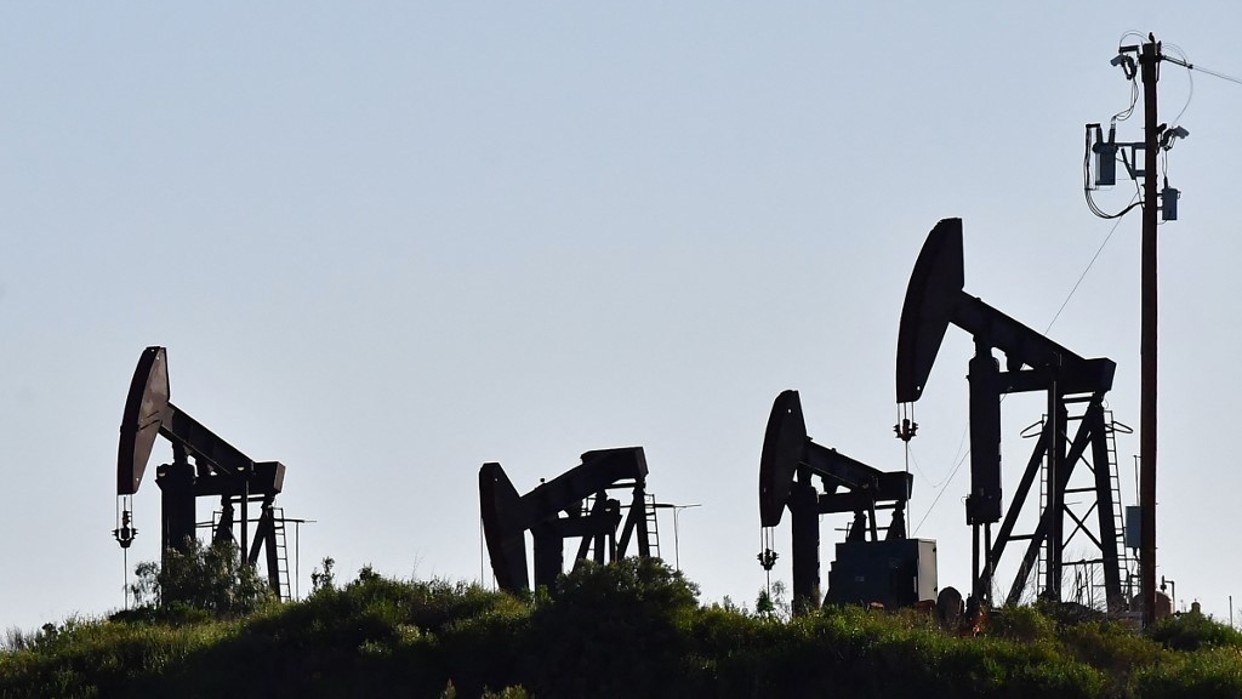
Oil rigs on top of a hill. File photo.

Orinoco Tribune – News and opinion pieces about Venezuela and beyond
From Venezuela and made by Venezuelan Chavistas

Oil rigs on top of a hill. File photo.
Venezuela’s vice minister of anti-blockade policies, William Castillo, criticized the licenses granted by the US government to some companies to carry out their oil operations in Venezuela.
Castillo explained that the licenses granted by the US, instead of alleviating the consequences of the blockade against Venezuela, confirm the “criminal foreign policy” of the US administration against the country.
During a video conference, the vice minister condemned this measure of “licenses” that only imbues the criminal actions of the US with a false veneer of legality.
Gas Agreement Between Venezuela and Trinidad & Tobago Moves Forward Despite US Sanctions
“President Nicolás Maduro has said it: no company has to ask permission from the US to work with Venezuela,” he said during the video conference convened by the National Autonomous University of Managua.
He also pointed out that 30 countries are currently suffering the consequences of some 26,000 sanctions imposed unilaterally by the US government and its allies. More than 22,000 of these measures have been applied since the year 2000.
“Those 30 countries include 28% of the world’s population and 72% of the planet’s territory,” explained Castillo.
30 países (28% de la población y 72% del territorio del planeta) están sometidos a más de 26 mil sanciones de EE.UU, la Unión Europea y otros países. Más de 22 mil de esta medidas han sido aplicadas desde el año 2000. Sanciones: instrumento criminal e ilegal de política exterior pic.twitter.com/6QZbSupI4Y
— William Castillo Bollé (@planwac) August 29, 2023
Last week, Reuters published an article in which it was indicated that the European oil corporations Eni and Repsol plan to extend the agreement they have with Venezuela to improve their oil operations in the country.
However, for this, they need the approval of the US government, since the sanctions imposed by it prevent this type of agreement.
$22 Billion Worth of Venezuela’s Assets Remain Frozen by Sanctions
The aim of this new European approach is to supply refined products from PDVSA and boost oil deliveries to Europe, three sources told Reuters.
Eni and Repsol would seek to increase production in the joint Corocoro project and the Perla project (located on the maritime border with Colombia), which is linked to natural gas.
“Both Eni and Repsol can supply Venezuela with fuel and thus cover the demand that the South American country has,” wrote the outlet.
(RedRadioVE) by Ana Perdigón
Translation: Orinoco Tribune
OT/JRE/SL